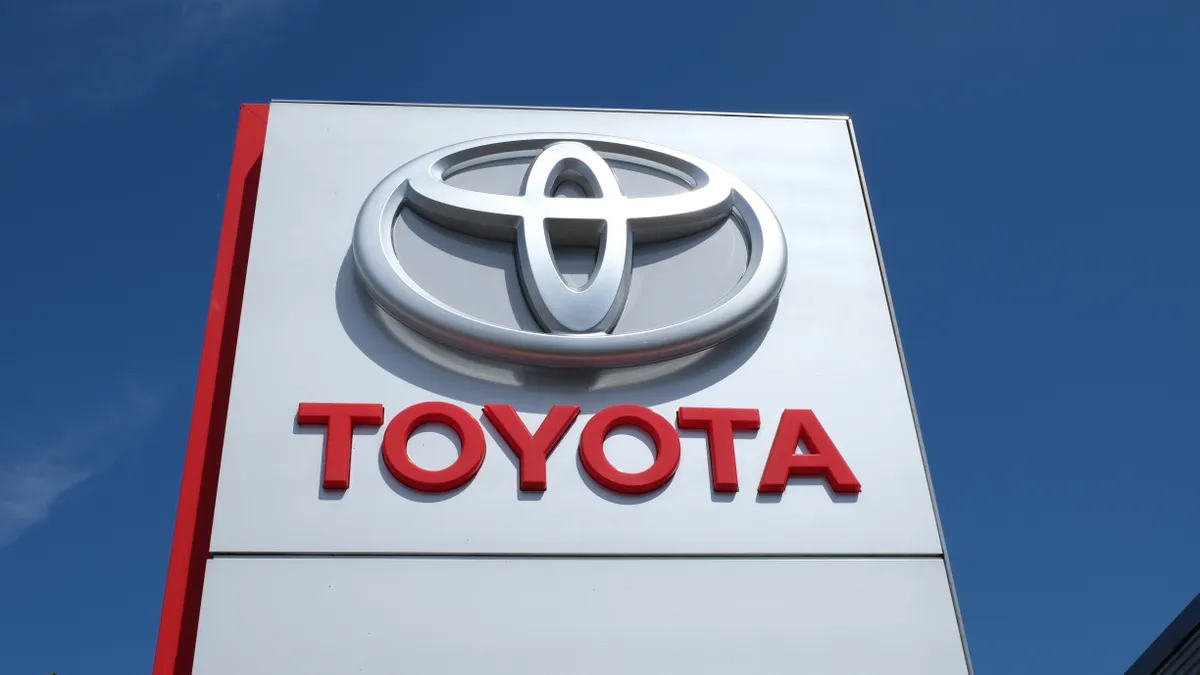Dive Brief:
- Toyota has restarted production at its four Chinese manufacturing facilities, a company spokesperson confirmed to Supply Chain Dive. The plants closed at the end of last month for the Lunar New Year celebration and have remained shuttered due to precautions surrounding COVID-19.
- Plants will operate on single shifts, the spokesperson said. The reduction in shifts will result in three of the four facilities operating at about half the original capacity, according to Nikkei Asian Review.
- "Auto companies are the most likely to be affected by supply chain production disruptions in the short term, in line with recent anecdotes of concerns from automakers globally," Goldman Sachs said in a research note on the economic effects of the outbreak released this week.
Dive Insight:
The location of the Toyota facilities has allowed them to open sooner than other companies, according to Nikkei.
China's Hubei Province has asked facilities not to resume work before March 11, Mirko Woitzik, the manager of EMEA Risk Intelligence at Resilience360, told Supply Chain Dive in an interview. Toyota's facilities are located in cities of Chengdu and Tianjin, and the provinces of Jilin and Guangdong, according to Nikkei.
Honda said last week it would not resume production at its Wuhan locations, which is in Hubei Province, until March 11. But Honda has locations in other parts of China that resumed production last week, according to Reuters.
"From what we see with the current picture is that, at least the Chinese government says, everything should be kind of back to normal by end of February," Woitzik said.
COVID-19's reach has extended beyond China and into Italy and South Korea, a fact that roiled confidence in international markets Monday.
"Everything that we see in China right now could then also happen in In Korea," Woitzik said.
If production in China resumes to normal, pre-outbreak levels by late March then Goldman Sachs expects the impact on U.S. businesses to remain minimal. A continued shutdown will exacerbate impacts, the firm said. "The impact might also become much larger if the coronavirus outbreak spreads quickly and slows down activity in other countries, disrupting supply chains further," the note reads.
Still, most manufacturing sectors in the U.S. believe there is enough inventory on hand to continue normal operations until the second quarter, according to a survey of analysts conducted by Goldman Sachs.
"The supply chain effect is likely nonlinear with the length of the outbreak, as production is likely to remain largely unaffected until inventories run out, after which production may fall sharply," Goldman Sachs wrote.
Companies on the other side of the Pacific are investing heavily to ensure inventory issues don't arise. John Deere plans spend $40 million on expedited freight to ensure no disruption in supply, the company's CFO said on an earnings call last week.
The continued reduction in manufacturing output is leading to decreased demand across freight modes. Maersk announced Monday more blank sailings extending into mid-March. "[W]e have seen a further reduction in demand due to the extended holiday period announced in China," the carrier said in a service alert.














